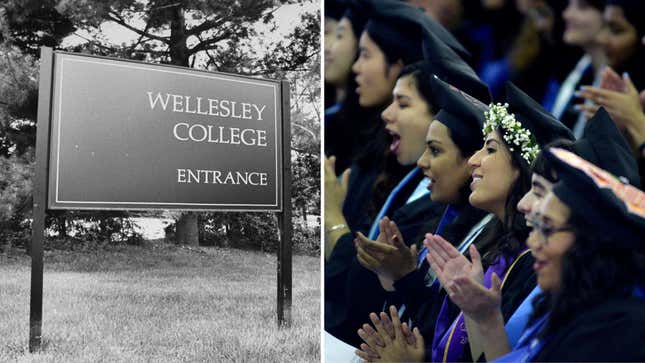Wellesley Should Listen to the Students Who Voted to Admit Trans Men
As a women's college graduate, I think it's a mistake to ignore the decision of the non-binding referendum.
EntertainmentEntertainment

Yesterday, students at Wellesley College, the elite, all-women’s college in Massachusetts, voted yes on a referendum allowing trans men and nonbinary applicants to apply to the school. But the affirmative vote is not binding, and it doesn’t seem that it will alter the school’s current stance of only “accepting applications from all those who live as women and consistently identify as women.”
Following the vote, which also recommended updating the school’s communications to reflect gender-inclusive language, President Paula Johnson released a statement saying that the college would not reconsider its opposition to considering applications from trans men.
-

-

-

-

-

-

-

-

-

-

-

-

-

-

-

-

-

-

-

-

-

-

-

-

-

-

-

-

-

-

-

-

-

-

-

-

-

-

-

-








































